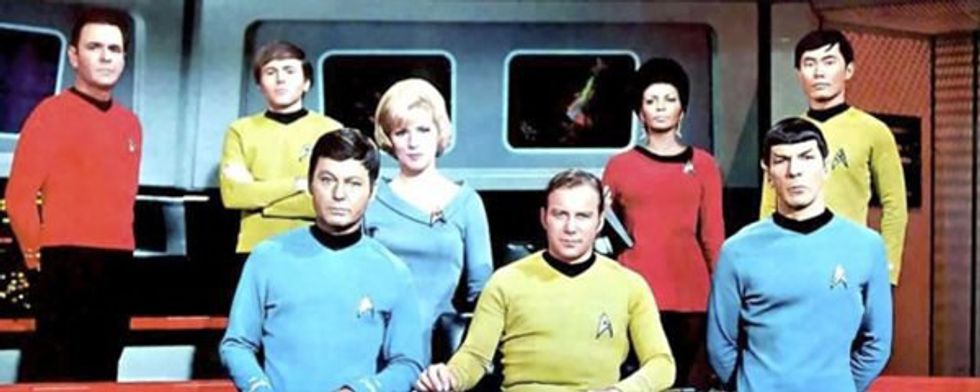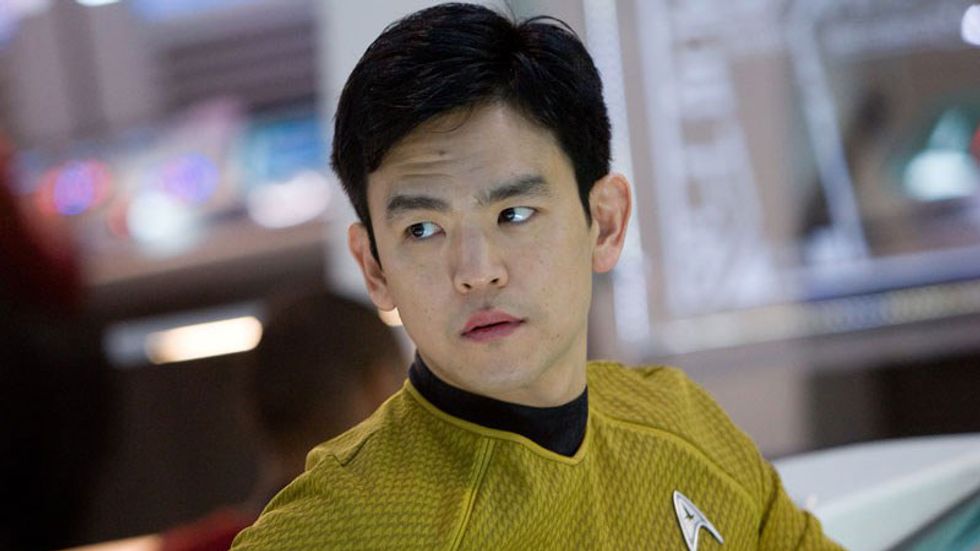Captain's Log: Stardate 2016-- essentially 50 years since "Star Trek" first aired on television in 1966. Since its inception, "Star Trek" has proven to be a progressive franchise, even by standards set in the 1960s. "Star Trek" was the first show to air an interracial kiss between Captain Kirk and Lieutenant Uhura in 1968, months after the assassination of Dr. Martin Luther King Jr., and featured a prominent multiracial and multi-ethnic cast consisting of a African American woman communications officer, a Japanese pilot, a Scottish engineer, a Russian navigator, and even a Vulcan science officer. In the times of the Cold War and xenophobic America, this is an extremely socially progressive cast.
In later adaptions, this progressive sentiment remained. Whoopi Goldberg, who appeared herself on "Star Trek: The Next Generation," cited "Star Trek: The Original Series" to be an inspiration for her as a child: "Well, when I was nine years old Star Trek came on," Goldberg says. "I looked at it and I went screaming through the house, 'Come here, mum, everybody, come quick, come quick, there's a black lady on television and she ain't no maid!' I knew right then and there I could be anything I wanted to be." A black woman in an empowering role was quintessential to many black Americans-- especially young girls.
Even today, in the new "Star Trek" movie adaptions starring Chris Pine and Zachary Quinto, race issues are addressed directly in the movie as Spock (played by Quinto) is discriminated against for being half-human and half-Vulcan. The character felt torn between his two halves and struggled throughout the movie to accept himself based on the differing societal standards set upon him-- a direct allegory to many race issues that still play out today.
However, now "Star Trek" is tackling a new front: the LGBT community. In the wake of the Orlando shooting, a tragic event that we are all still carrying with us, it was announced that Hikaru Sulu, the helmsman of the USS Enterprise, would be portrayed as a gay man with a husband in the upcoming film "Star Trek Beyond" (2016). Some people may be outraged, some disappointed, but for a franchise like "Star Trek," this was a pleasant and generally unsurprising announcement. So, Sulu is gay now-- and that's okay. He's still a great pilot who is strangely interesting in plants. Sulu is still the same guy, just with another personality describer and a husband. He isn't a new character, nor does this mean anything about him is changing-- he just likes men. And that's okay. It's great, actually. Maybe it's time for media to stop going between fetishizing and obsessing over homosexual relationships or condemning them, and just let gay people be portrayed as what they are: people.
According to Simon Pegg, actor and writer of "Star Trek Beyond," the decision for Sulu to be gay was supposed to be a nod to George Takei, the original actor of Hikaru Sulu who is himself homosexual. Though Takei didn't take on too kindly to the idea of Sulu being gay, claiming that it wasn't part of the original series' creator Gene Roddenberry's vision-- though he did express that he was happy that there was a gay character in "Star Trek Beyond"-- he had just hoped it would be a new character entirely instead of an existing one.
"Star Trek" has had its array of problems throughout the past 50 years-- and those problems (which include sexism) should definitely not be ignored-- however, let's let the good things be good things and celebrate that one of history's greatest characters is now a great representation for every gay kid out there looking for someone to inspire them. Because hey, if a black woman on television inspired Whoopi Goldberg to follow her dreams, maybe a gay man kicking ass on the big screen could do the same.




















